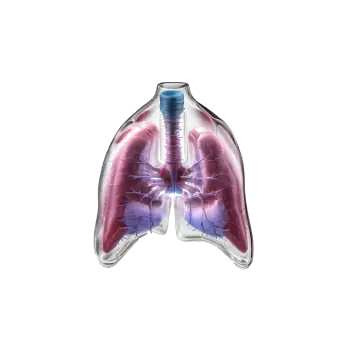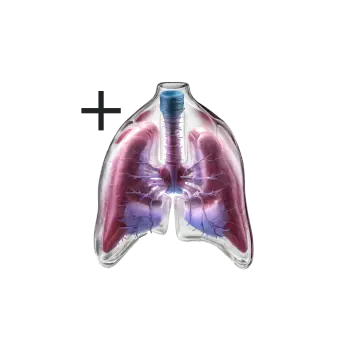The thyroid gland, an important gland located in the neck, plays a crucial role in the regulation of metabolism in the body. Thyroid disorder is a common disease that affects many people in Sweden and around the world.
What is thyroid disorder?
Thyroid disorder occurs when the thyroid gland does not function properly. It can be divided into two main types: hypothyroidism and hyperthyroidism. In hypothyroidism, the thyroid gland produces too little thyroid hormone, while hyperthyroidism means overproduction of these hormones.
What causes a thyroid disorder?
Thyroid disorders can occur at different times in life. Some cases are linked to hereditary factors, while others may be the result of autoimmune diseases such as Hashimoto's thyroiditis (hypothyroidism) or Graves' disease (hyperthyroidism). In addition, external factors such as stress, infections or certain drugs can also affect the functioning of the thyroid gland.
What are common symptoms of a thyroid disorder?
The symptoms of a thyroid disorder vary depending on whether it is hypothyroidism or hyperthyroidism. In hypothyroidism, fatigue, weight gain, feeling cold, constipation, dry skin and depression can be common symptoms. These are due to the thyroid gland not producing enough thyroid hormones, which leads to a lowering of the body's metabolism. In hyperthyroidism, weight loss, palpitations, sweating, irritability, sleep problems and anxiety are common symptoms. In hyperthyroidism, the thyroid gland overproduces thyroid hormones, which results in an increased metabolism and affects various body functions.
Women are affected to a greater extent than men by thyroid disorders
Thyroid disorders are more common in women than in men. Women have a higher risk of developing the disease, especially during childbearing years and after menopause. The reason for this is not fully understood, but hormonal factors may play a role in the increased vulnerability of women. Close to half a million Swedes are diagnosed with a thyroid disease, but in addition to these, it is also estimated that a large dark figure in the number of those affected is due to misdiagnosis or treatment.
When is it good to test your thyroid?
There are various situations when it may be appropriate to test the thyroid gland to assess its function. Here are some examples of when to consider thyroid testing:
- Symptoms of a thyroid disorder: If you experience symptoms that may indicate a thyroid problem, such as fatigue, weight changes, mood swings, hair loss, changes in heart rhythm or menstrual disturbances, it may be appropriate to discuss with your doctor and consider thyroid testing. li>
- Family history of thyroid disease: If there is a family history of thyroid disease, especially autoimmune diseases such as Hashimoto's thyroiditis or Graves' disease, it may be important to regularly test the thyroid gland to detect any abnormalities in time.
- Pregnancy and fertility problems: Thyroid disorders can affect fertility and the risk of complications during pregnancy. If you are planning to become pregnant, are having difficulty conceiving or are pregnant, it may be appropriate to have your thyroid tested to ensure it is functioning optimally.
- Monitoring previously diagnosed thyroid disease: If you already have a previously diagnosed thyroid disease and are receiving treatment, regular tests can be used to monitor and adjust your treatment to ensure your thyroid is working properly.
Tests that can help diagnose thyroid disorders
If you suspect a thyroid disorder, it is important that you seek medical help to get a correct diagnosis and treatment. To diagnose a thyroid disorder, a doctor needs results from various tests. The most common test is a blood test to measure the levels of the thyroid hormones TSH (thyroid-stimulating hormone), T3 (triiodothyronine) and T4 (thyroxine).
Thyroid tests
If you want, you can order your own tests to get answers to your values before a consultation with a doctor. You can either choose one of our ready-made packages such as Thyroid test and Thyroid test plus or test specific markers for T3, TSH and TPO antibodies and .
Support your thyroid health
There are certain steps one can take to support thyroid health. Eating a balanced diet that includes iodine and selenium, managing stress levels, exercising regularly, and following treatment advice from your doctor can all be beneficial in maintaining healthy thyroid function.

























